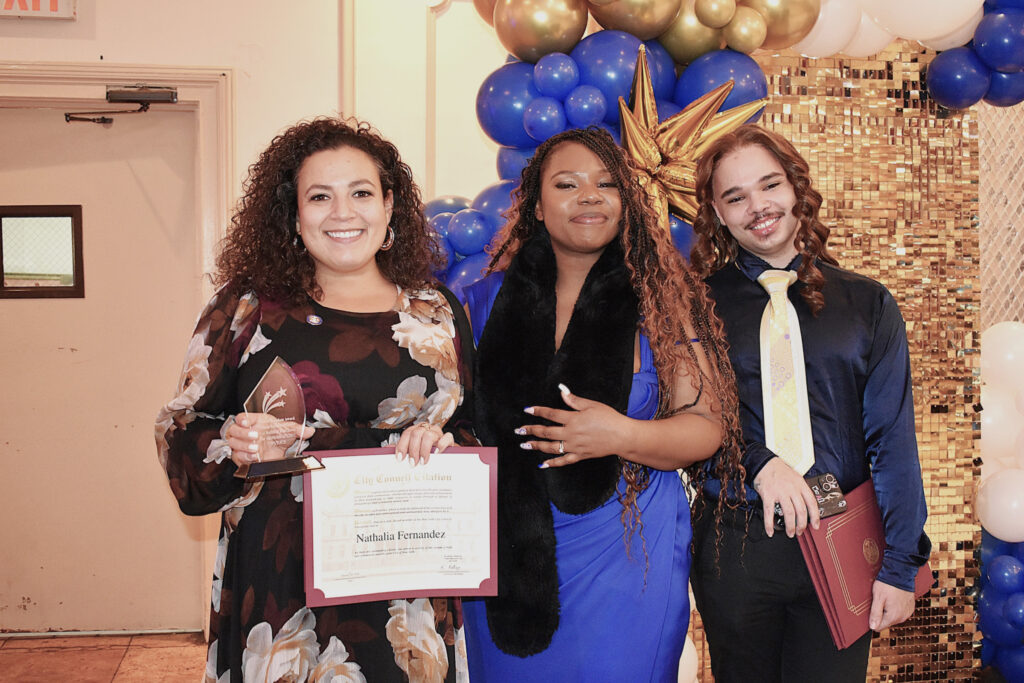
Photo by Miriam Quinones
Freedom Youth Family Justice Center (FYFJC), which seeks to empower, strengthen, and stabilize victims and survivors of human trafficking and domestic violence, held a “Stars of Freedom” annual gala on Friday, Jan. 24, at Eastwood Manor in the Williamsbridge section of The Bronx. Founded by Monique Riley, CEO, in conjunction with her husband, Joseph Riley, executive director, the Freedom Youth team took some well-deserved time out to celebrate their hard work and honor survivors, friends and allies.
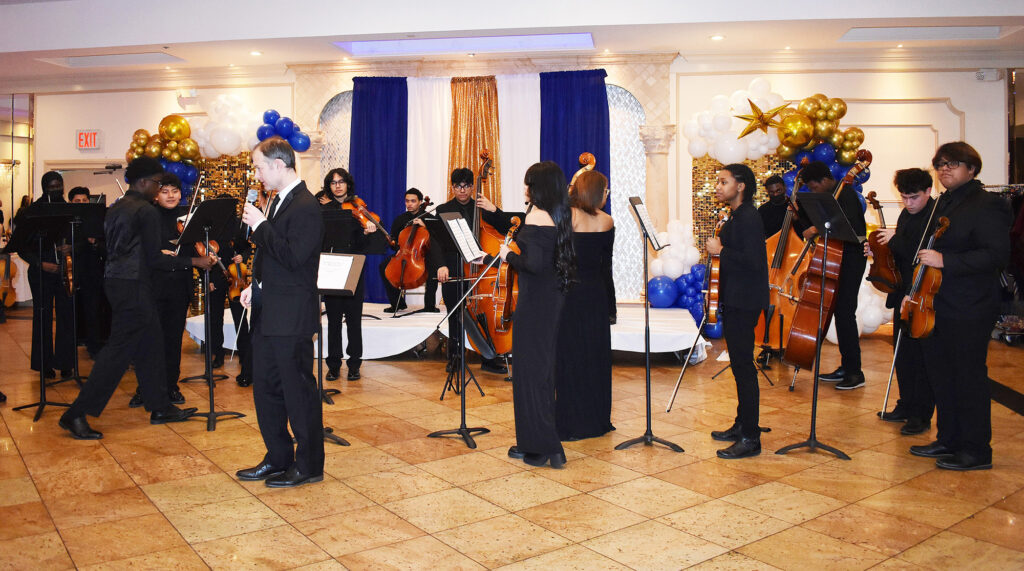
Photo by Miriam Quinones
Among those honored on the night, following a beautiful, orchestral musical performance, an auction, dinner, and other performances and a House DJ, were State Sen. Nathalia Fernandez (S.D. 34), who represents much of the East Bronx, Rochelle Bent, MBA, founder and chief visionary officer of Curations by Chelle B, Franklyn Williamson, senior pastor and overseer of Gospel Tabernacle Church Apostolic, Joseph Riley, and Marilyn Ross-Moody, immediate past president of the greater Bronx chapter of The Links, Incorporated.
Also honored, among others, were Danielle King-Stennett of the Bronx alumnae chapter of Delta Sigma Theta Sorority, Alina Dowe, MBA, Bronx borough director at the Mayor’s Community Affairs Unit, Desia Monsanto, MBA, assistant director of graduate practical training & career services at Monroe University, Joshua Lespier, BA, executive administrator at FYFJC, Lisa Dawson, president of the north Bronx branch of the National Council of Negro Women, and Pamela Damon, executive director of Not on My Watch.
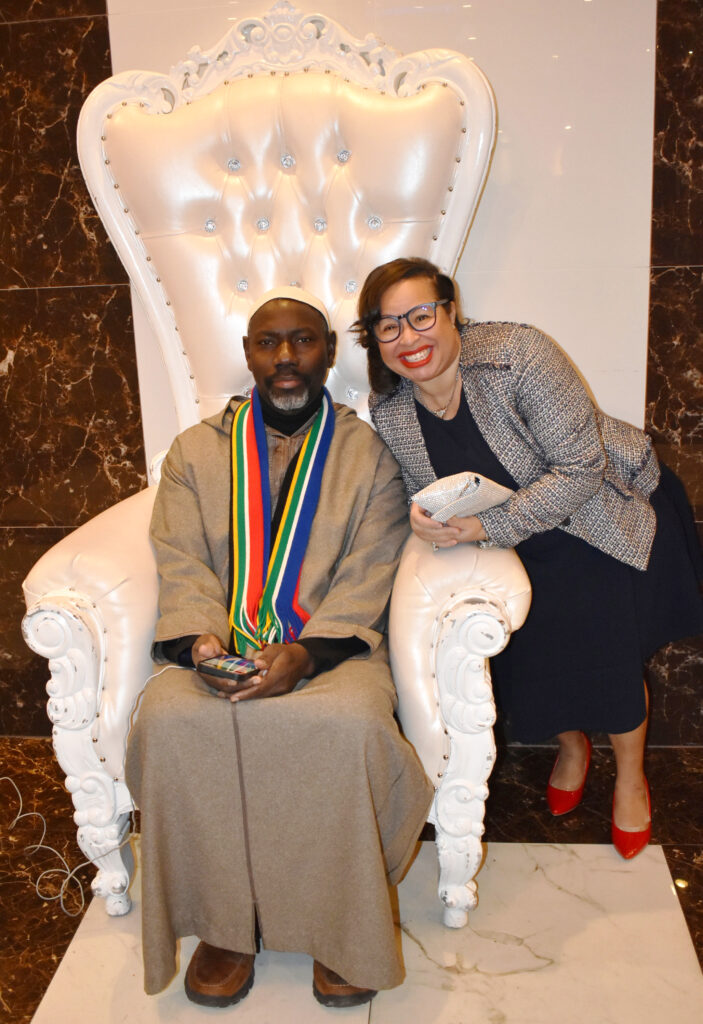
Photo by Miriam Quinones
Survivor Jakoyah Boford Stevenson spoke from the heart on the night about her journey leading up to her first interaction with Freedom Youth, and her experience thereafter. Addressing her fellow survivors in particular, Boford Stevenson said, “This is your night; you all look amazing! I’m glad you guys all showed up and came to show your support for Freedom Youth and for all survivors.”
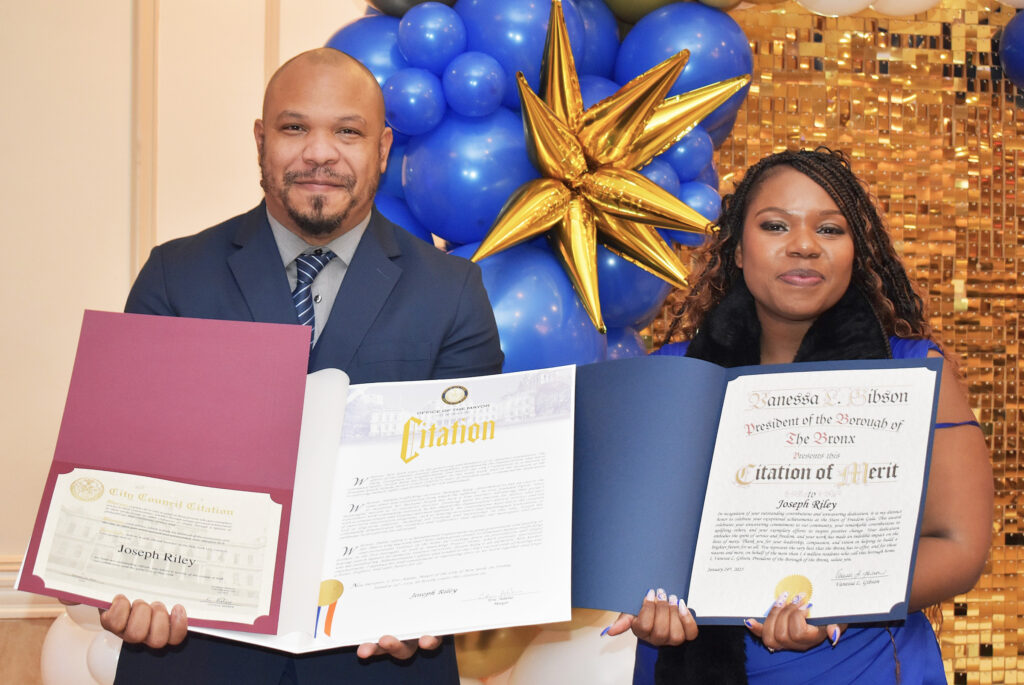
Photo by Miriam Quinones
She continued, “I am here today to explain my situation. I was a victim of sex trafficking, and I wasn’t taken serious. I wasn’t given what I needed to be given in terms of support. When I came to Freedom Youth, they gave me everything I needed: support, emotionally and mentally. They made sure I was mentally alright, even though others would just shrug it off, [saying], ‘Okay, she’s kind of having a panic attack. Okay, she’s melting down. She’s just acting erratic.’”
Boford Stevenson went on to say, “In all reality, every survivor needs somebody, that one person they could just go to, and use as an outlet and support, someone that can sit there and tell them it’s okay, and I want to thank three actually, Mr. Joseph Riley, CEO Monique Riley, and Joshua, because they are the reason I got out of that situation, and I’m still fighting through it.”
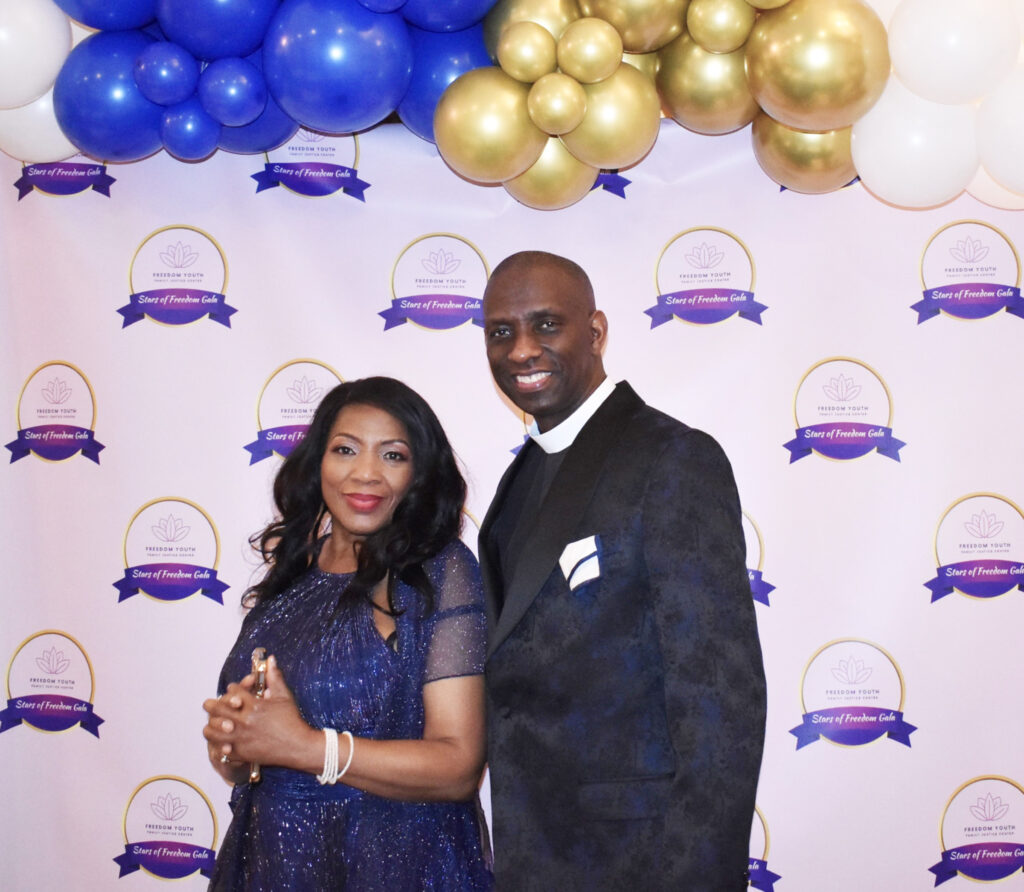
Photo by Miriam Quinones
According to the Urban Resource Institute (URI), homelessness isn’t just a housing crisis, it’s a human trafficking crisis. A new report by URI and The Passage reveals that 74% of trafficking survivors in New York City experienced homelessness, and 31% were trafficked directly from shelters. URI officials said these alarming statistics spotlight a critical gap in the City’s ability to protect its most vulnerable populations.
Key findings included that traffickers specifically target individuals in unstable housing situations, especially youth, LGBTQIA+ individuals and undocumented immigrants. Shelters often lack survivor-centered policies and sufficient space for single adult survivors. Investment in training and affordable housing can directly improve outcomes for survivors.
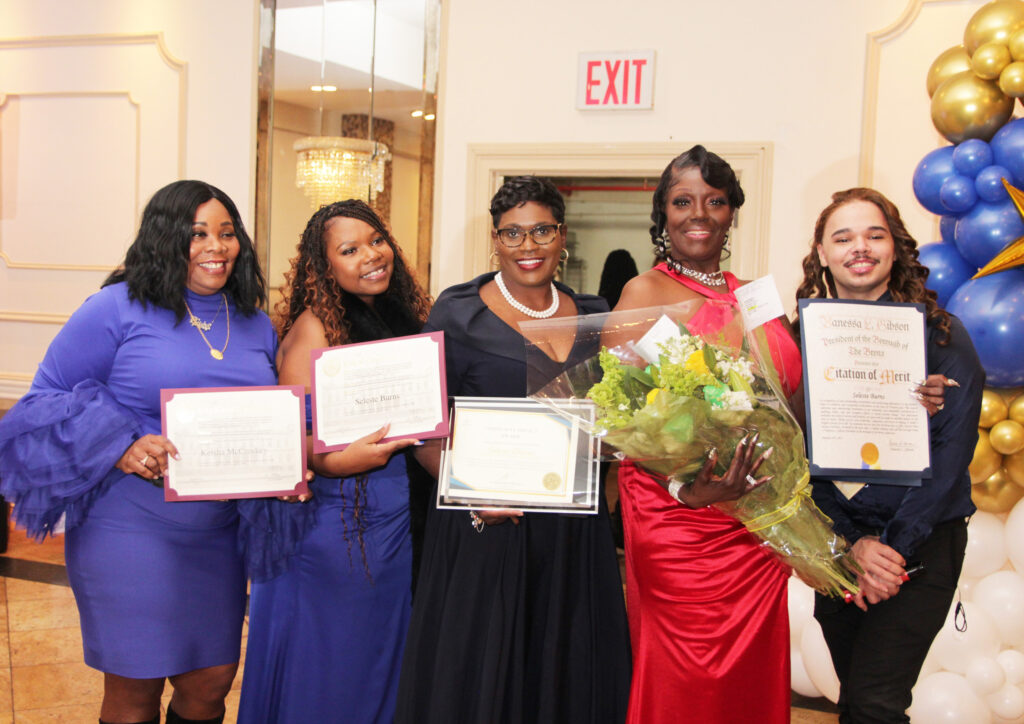
Photo by Síle Moloney
During her remarks, Monique Riley, founder and CEO of FYFJC, outlined how she and Lespier often venture out into the City in the middle of the night, working long, difficult hours, assisting victims of human trafficking escape from their traffickers and their circumstances. “I get in my car at three or four o’clock in the morning cause a parent called me frantic, looking for a child,” she said, before acknowledging all her team and asking them to recognize each other’s hard work.
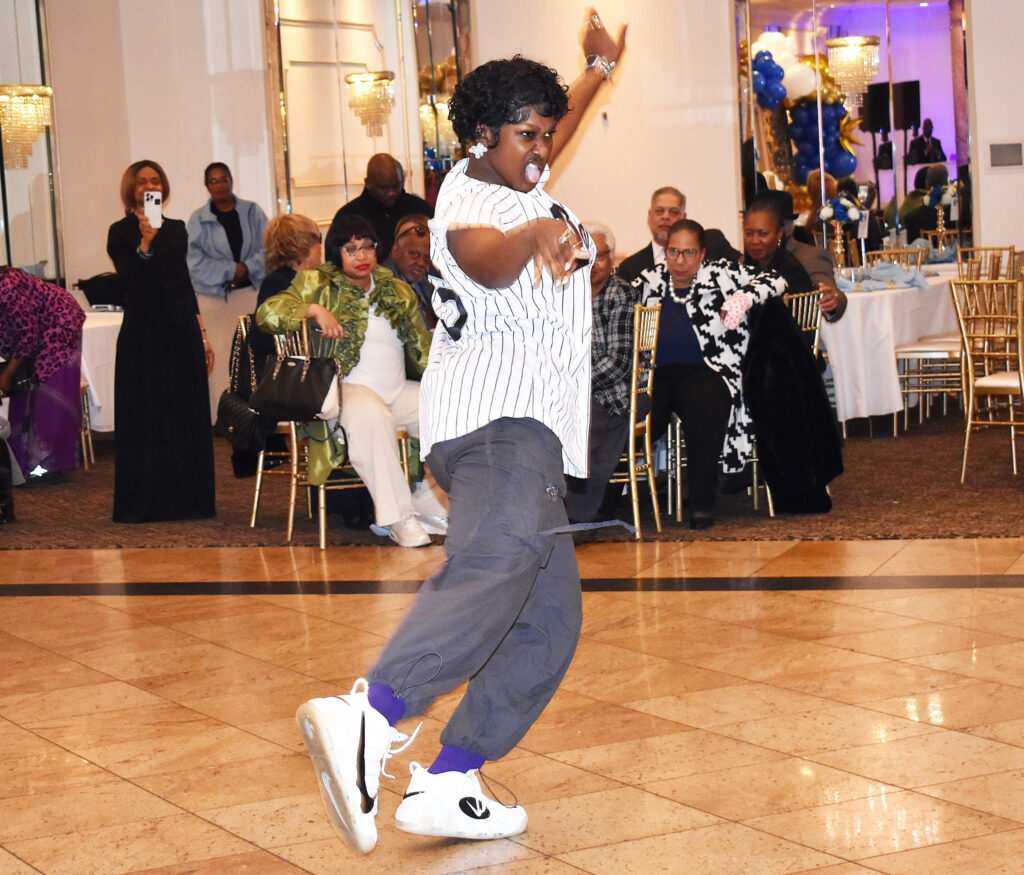
Photo by Miriam Quinones
Meanwhile, Boford-Stevenson said of her recovery, “At the end of the day, I made it in 2025 and I got married. My husband stuck with me. Even through my trauma and being a sex trafficking victim, he understood. He grew with me. He made me open up more, and I thank my husband for that too. I want to say to everybody out there who doesn’t know how to speak up as a victim and as a survivor, there’s always somebody else out there to help you.”
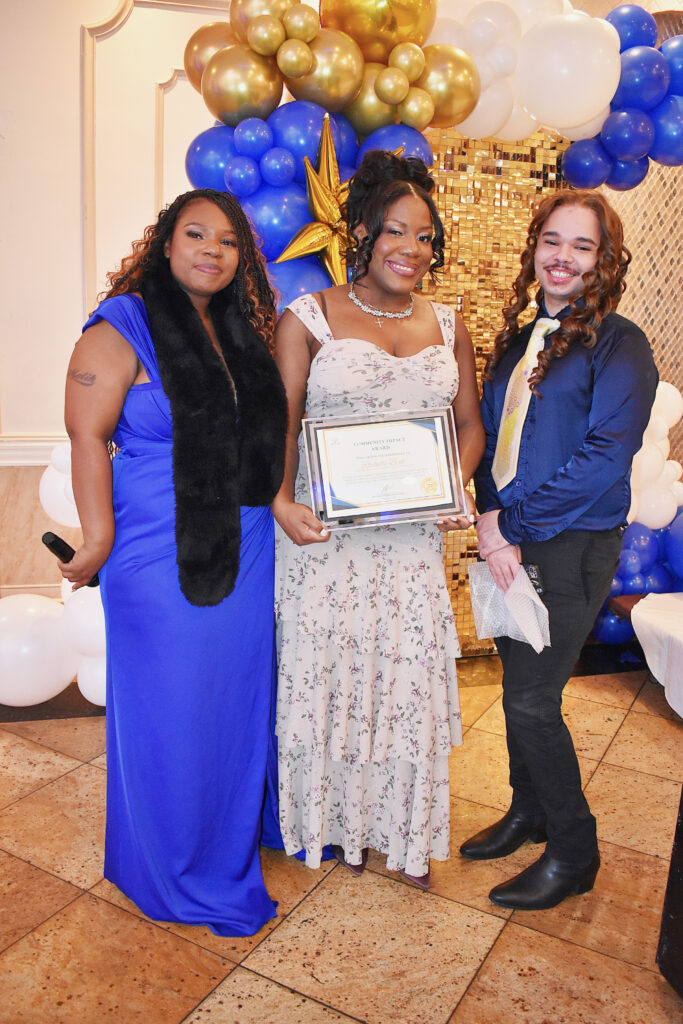
Photo by Miriam Quinones
She concluded, “There’s always that one person that will accept you, and is willing to learn you, to help you grow as a person. So don’t stop fighting for your survival. Don’t stop fighting. There’s other people out there. You got to be strong and you’re beautiful and resilient.”
For more information, visit https://www.freedomyouthfamilyjusticecenter.org/.




